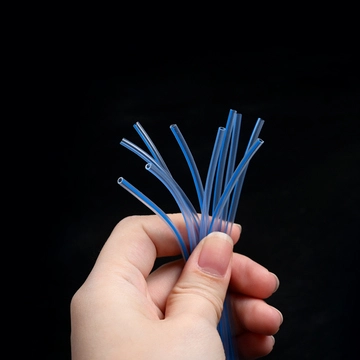Silicone tubes are widely used in various industries due to their flexibility, durability, and resistance to extreme temperatures. Selecting high-quality silicone tubes is crucial for ensuring the longevity and performance of your applications. This article outlines best practices for choosing the right silicone tubes for your needs.
Understanding Silicone Tube Specifications
Before selecting silicone tubes, it is essential to understand their specifications. silicone tubing distributors come in various sizes, thicknesses, and durometers. The durometer measures the hardness of the silicone, which affects its flexibility and strength. Knowing the specific requirements of your application will help you choose the right specifications.

Evaluating Temperature Resistance
One of the significant advantages of silicone tubes is their ability to withstand extreme temperatures. When selecting silicone tubes, consider the temperature range they will be exposed to. High-quality silicone tubes can typically handle temperatures from -60°C to 200°C. Ensure that the tubes you choose meet the temperature requirements of your application.
Assessing Chemical Compatibility
Silicone tubes are often used in environments where they come into contact with various chemicals. It is crucial to assess the chemical compatibility of the silicone material with the substances it will encounter. High-quality silicone tubes should be resistant to oils, solvents, and other chemicals to prevent degradation and ensure longevity.
Considering Flexibility and Bend Radius
The flexibility of silicone tubes is another important factor to consider. Depending on your application, you may need tubes that can bend easily without kinking. The bend radius is the minimum radius that a tube can be bent without causing damage. Ensure that the silicone tubes you select have an appropriate bend radius for your specific needs.
Checking for Certifications and Standards
When selecting silicone tubes, it is essential to check for industry certifications and standards. High-quality silicone tubes should comply with relevant regulations, such as FDA, USP, and ISO certifications. These certifications ensure that the tubes meet safety and quality standards for their intended applications.
Evaluating the Manufacturer’s Reputation
The reputation of the manufacturer plays a significant role in the quality of silicone tubes. Research potential manufacturers and read reviews from other customers. A reputable manufacturer will provide high-quality products and excellent customer service. Look for manufacturers with a proven track record in producing silicone tubes.
Inspecting the Tube’s Surface Quality
The surface quality of silicone tubes can impact their performance. High-quality silicone tubes should have a smooth surface free from defects, such as bubbles or cracks. Inspect the tubes visually before purchasing to ensure they meet your quality standards. A smooth surface will also facilitate easier cleaning and maintenance.
Understanding the Application Requirements
Different applications have unique requirements for silicone tubes. Consider factors such as pressure, flow rate, and environmental conditions when selecting tubes. Understanding the specific needs of your application will help you choose the most suitable silicone tubes for optimal performance.

Reviewing Cost vs. Quality
While cost is an important factor in selecting silicone tubes, it should not be the only consideration. High-quality silicone tubes may have a higher upfront cost but can save money in the long run due to their durability and performance. Evaluate the cost versus the quality to ensure you are making a wise investment.
Testing and Prototyping
Before making a bulk purchase, consider testing and prototyping the silicone tubes. Request samples from manufacturers to evaluate their performance in your application. Testing will help you identify any potential issues and ensure that the tubes meet your requirements before committing to a larger order.
Conclusion
Selecting high-quality silicone tubes is essential for the success of your applications. By following these best practices, you can ensure that you choose the right tubes that meet your specific needs. Understanding specifications, evaluating temperature resistance, and considering chemical compatibility are just a few of the factors to keep in mind. With careful consideration and research, you can find the perfect silicone tubes for your projects